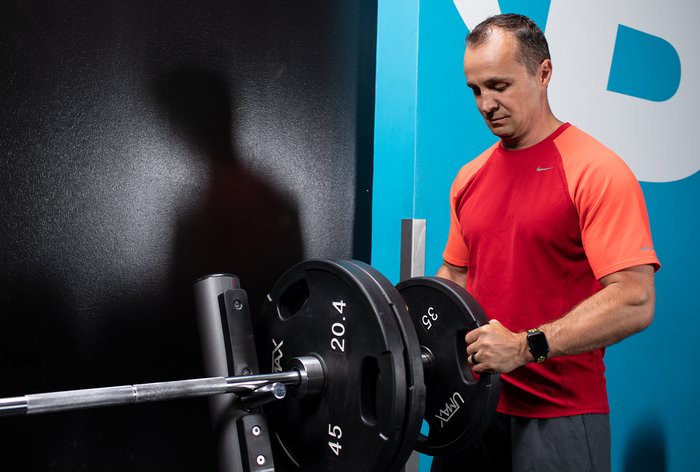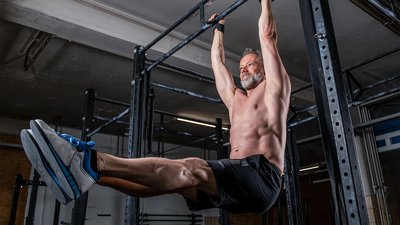I'm a regular lifter who focuses on, well, lifting. But recently I had the urge to lean out. Maybe see an ab or two. Is that silly for someone 40 or beyond? Should I just focus on holding onto what strength and muscle I have?
There's nothing wrong with being lean—or wanting to be lean—just for appearance's sake. It can also be a good idea if your long-term health is a big priority for you. (And to be clear, leanness and restrictive dieting are not the same thing in this conversation.)
Yes, it can be hard to get lean and stay lean as you get older. You don't need a PubMed citation to know that! But from where I stand, I think it deserves to be in your athletic priorities. Look, I know it's cool to be big and jacked, but, if you examine the bulk of research on body weight and health, it's quite clear that staying within more or less normal BMI values is probably a good idea.
I know some people aren't fans of BMI, and I understand why. For example, I'm not a big guy at 6-foot-2, 188 pounds, but amazingly enough, my BMI is 24.1, which is at the very upper end of normal. You can calculate your BMI here.
I could get bigger, if I wanted to. But I'd have to eat differently, train differently, and honestly, live differently. And after a certain age, it's OK to ask if that's really such a good idea anymore.
Should Size Always Be the Prize?
One observation I've had—especially as I get older—is that, much the same as women often feel pressured to adopt narrow, socially-dictated body standards, men also fall prey to the idea that the only appropriate goal is to carry a lot of muscular bulk.
Yes, that's just part and parcel of being immersed in the bodybuilding and lifting world. And I love being immersed in that world. But there's another world as well, where large sections of society don't ascribe to this standard at all, and in many social circles, looking conspicuously jacked isn't considered either cool or healthy.

Who's wrong and right? Neither one. I say, make your own decisions about how big you want to be. There are plenty of guys with incredibly impressive physiques, despite not being particularly big. Stop me if you've heard this one before, but Bruce Lee walked around at only 135 pounds. And don't forget Brad Pitt's impressive physique in "Fight Club." He only weighed 160 pounds while filming that role.
Let me share a few additional thoughts and observations about being lean, particularly for men:
- Being lean improves nutrient partitioning. What this means is that more of the calories you consume will end up as muscle, rather than body fat.
- Yes, some of your big lifts can benefit from having a bit more bodily heft behind them. But you can still get plenty strong by following solid training like my Bodybuilding.com BodyFit Elite program Total-Body Strong and eating a decent-but-not-obscene amount of quality chow.
- Getting lean and staying lean can be easier than adding size, especially as you get older. Train at a moderate, safe intensity regularly, and you may not get huge, but you can get lean and still look solid.
- Being lean takes discipline and conveys personal discipline. Think about it—you probably run across lots of "big" guys during an average day, and they can certainly be impressive. But when's the last time you saw a lean and muscular older guy or gal? When you do make such an encounter, you tend to notice it.
- Sorry if this sounds a bit too "bodybuilder," but being lean creates the illusion of being more muscular than you really are. While you might look a bit "skinny" in clothes, when you take off your shirt at the pool, hey, that ain't so bad.
In short, don't dismiss leanness as a goal. Muscle isn't the only measurement of success—especially as you get older. Be rational, put your ego aside, and focus on doing quality work consistently, and you and your body will find the sweet spot.

